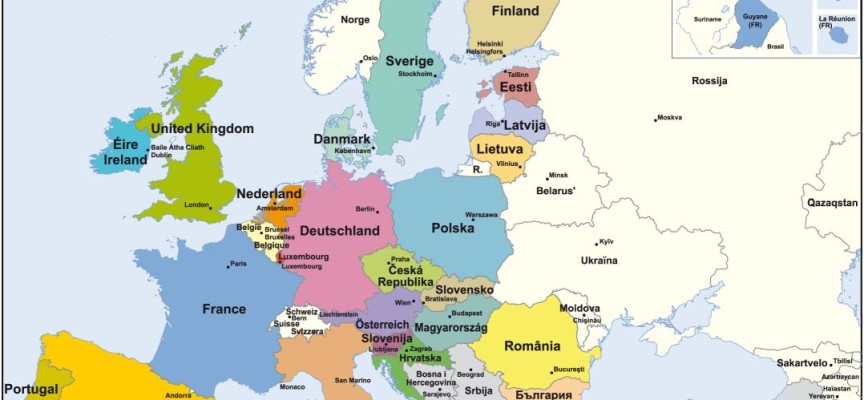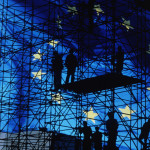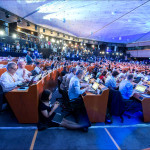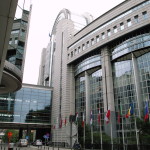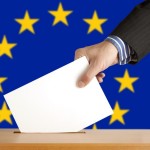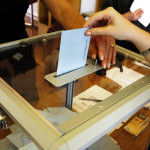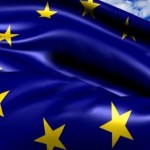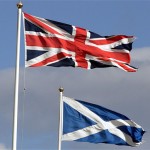But one should not lose sight of the whole picture, despite these glaring details. And the picture does not look so bad at all. The turnout has slightly risen (to 43.1%). But above all: more than 70% of Europeans voted for parties that support the European Union and the political road to the unification of Europe, even though with some criticism on single issues. And despite the many small splinter parties, the two major European political currents (Conservatives and Christian Democrats on the one hand, and Social Democrats on the other) substantially reasserted themselves, as the two smaller (Liberals and Greens) also did.
The strengthening of the parties on the left and on the right side is a warning sign, but it does not shake the EU to its foundations. Perhaps the long-term effect will even be positive. Actually, if the EU supporting political forces want to prevent the further growth of this fundamental opposition, they must do more than ever to make the European project progress. In particular, they must better explain Europe. Competition is good for business – even in politics.
At least as important as the election of the European Parliament was the presidential election in Ukraine, which took place on the same day. Especially in the east of the country, many people risked their lives again – this time with the ballot – in order to vote for their national self-determination and for further rapprochement with the EU. The same European Union, which for some EU skeptics in Western Europe is only the object of scorn and mockery, to millions of Ukrainians it is a lighthouse of prosperity, peace and tolerance. From this perspective, on 25 May the majority of the people voted for Europe and its values even in 29 (!) European countries. The founding fathers of a united Europe, despite some worry lines on the forehead, would probably have been proud after this historic day, had they had the possibility to live it.
Doch sollte man angesichts dieser grellen Details nicht das Gesamtbild aus dem Auge verlieren. Und das sieht gar nicht so schlecht aus. Die Wahlbeteiligung ist leicht gestiegen (auf 43,1 Prozent). Vor allem aber: Mehr als 70 Prozent der Europäer haben für Parteien gestimmt, die – bei mancher Kritik in Einzelfragen – die Europäische Union und den politischen Weg zur Einigung Europas unterstützen. Und trotz der vielen kleinen Splitterparteien konnten sich die beiden großen europäischen politischen Strömungen (Konservative und Christdemokraten auf der einen und Sozialdemokraten auf der anderen Seite) im Wesentlichen ebenso behaupten wie die beiden kleineren (Liberale und Grüne).
Das Erstarken der Parteien am linken und am rechten Rand ist ein Warnsignal, aber es erschüttert die EU nicht in ihren Grundfesten. Vielleicht ist der langfristige Effekt sogar heilsam. Denn wenn die tragenden politischen Kräfte der EU ein weiteres Anwachsen dieser fundamentalen Opposition verhindern wollen, müssen sie mehr tun als bisher, um das europäische Projekt voranzubringen. Vor allem müssen sie Europa besser erklären. Konkurrenz belebt das Geschäft – auch in der Politik.
Mindestens so wichtig wie die Wahl zum Europaparlament war die Präsidentschaftswahl in der Ukraine, die am selben Tag stattfand. Vor allem im Osten des Landes haben wieder viele Menschen ihr Leben riskiert, um – diesmal mit dem Stimmzettel – für ihre nationale Selbstbestimmung und für die weitere Annäherung an die EU zu stimmen. Dieselbe Europäische Union, für die manche EU-Skeptiker in Westeuropa nur Hohn und Spott übrig haben, ist für Millionen von Ukrainer ein Leuchtturm des Wohlstands, der Friedens und der Toleranz. So gesehen haben am 25. Mai die Menschen sogar in 29 (!) europäischen Ländern mehrheitlich für Europa und seine Werte votiert. Die Gründerväter des vereinten Europa wären wohl trotz einiger Sorgenfalten auf der Stirn stolz gewesen nach diesem historischen Tag, wenn sie ihn noch hätten erleben können.
Non così male come sembra
Non è facile, il giorno dopo, farsi un’idea di chi e che cosa i cittadini abbiano votato nei 28 Stati membri dell’Ue. Come nel famoso dipinto di Pieter Bruegel intitolato “il banchetto nuziale”, l’osservatore si perde nei molti dettagli e vede di primo acchito soprattutto quelli che sembrano essere particolarmente drammatici. Poiché le danze gioiose dei trionfanti nazionalisti impetuosi del “Fronte Nazionale” in Francia, l’urlo di vittoria dell’Ukip nemica dell’Ue in Gran Bretagna e le smorfie di Beppe Grillo, il clown politico anti-establishment in Italia, saltano agli occhi con inusuale evidenza. Creano scalpore anche la vittoria dei populisti di sinistra in Grecia e il primo successo degli euro scettici tedeschi del partito AfD (Alternativa per la Germania).
Non bisognerebbe però che questi dettagli evidenti facessero perdere di vista l’insieme del quadro. Che non sembra poi così male. L’affluenza è leggermente aumentata (al 43,1%). Ma soprattutto: più del 70% degli europei ha votato per partiti che sostengono l’Unione europea e la strada politica verso l’unificazione dell’Europa, anche se con alcune critiche su singole questioni. E nonostante i molti piccoli partiti separatisti, le due principali correnti politiche europee (conservatori e cristiano-democratici da una parte, socialdemocratici dall’altra) si sono sostanzialmente imposte, come anche le due più piccole (Liberali e Verdi).
Il rafforzamento dei partiti di estrema sinistra e destra è un segnale di avvertimento, ma non scuote le fondamenta dell’Unione europea. Forse l’effetto a lungo termine sarà addirittura benefico. Perché se le forze politiche che sostengono l’Ue vogliono impedire l’ulteriore crescita di questa opposizione radicale, devono fare più di quanto fatto prima per far avanzare il progetto europeo. Soprattutto, devono spiegare meglio l’Europa. La concorrenza è un bene per le imprese – anche in politica.
Altrettanto importante quanto l’elezione del Parlamento europeo sono state le elezioni presidenziali in Ucraina, che si sono svolte lo stesso giorno. Soprattutto nella parte orientale del paese, molte persone hanno di nuovo rischiato la vita per votare – questa volta con il certificato elettorale – per la loro autodeterminazione nazionale e per un ulteriore avvicinamento all’Ue. La stessa Unione europea, che per alcuni scettici nell’Europa occidentale è oggetto di scherno e derisione, per milioni di ucraini è un faro di prosperità, pace e tolleranza. Così l’hanno vista il 25 maggio le persone che addirittura in 29 (!) Paesi europei hanno in maggioranza votato per l’Europa e i suoi valori. I padri fondatori dell’Europa unita, nonostante qualche ruga di preoccupazione sulla fronte, sarebbero stati orgogliosi di questo giorno storico, se lo avessero ancora potuto vivere.
Ludwig Ring-Eifel
Chefredakteur, Kna (Deutschland)
Latest posts by Ludwig Ring-Eifel (see all)
- What will be Pope Francis’ message? - 14 ottobre 2014
- Stop the slaughterers in Iraq - 16 agosto 2014
- The Strasbourg Burqa judgment - 10 luglio 2014

